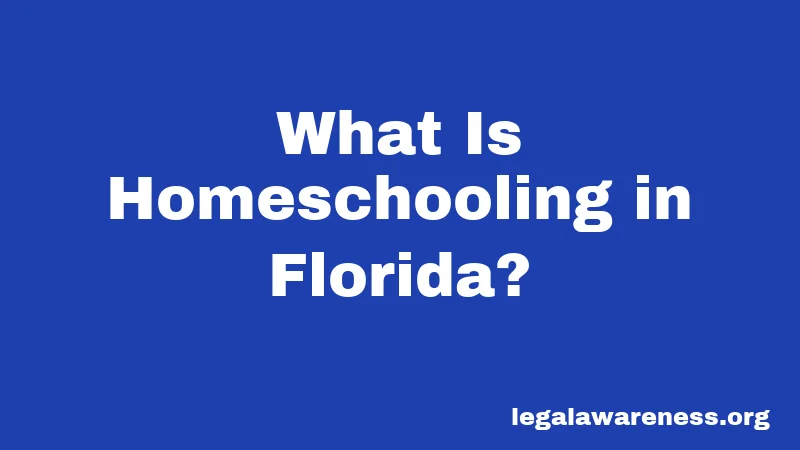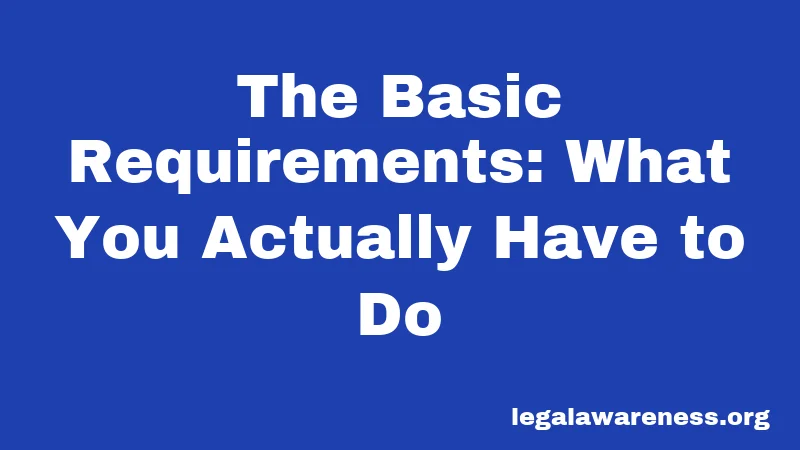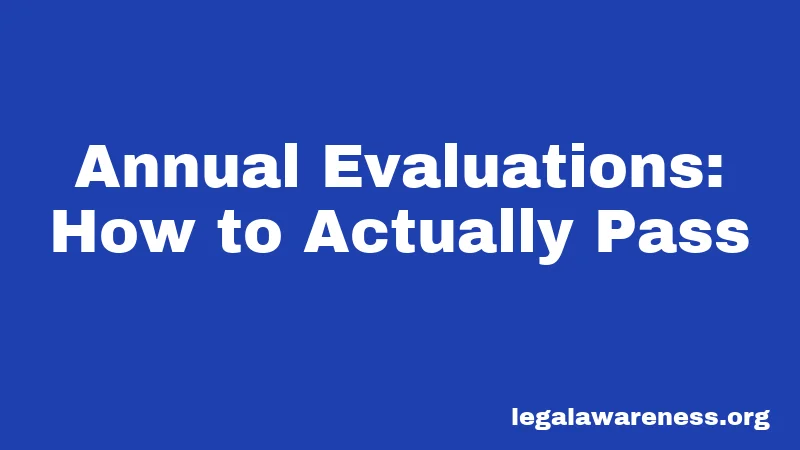Florida Homeschool Laws (2026): Complete Parent Guide
Most parents have tons of questions about homeschooling. Can you actually do it legally in Florida? What paperwork do you need? What if you mess up?
Here’s the good news: Florida is one of the most homeschool-friendly states in the country. The laws are clear, and they give parents a lot of freedom. Whether you’re just thinking about homeschooling or you’re already doing it, this guide breaks down exactly what Florida requires. No confusing legal jargon. Just straight facts.
What Is Homeschooling in Florida?

Florida law defines homeschooling pretty simply. It’s when a parent teaches their child at home in a way that makes sense and builds progressively. Think of it like this: each year, your child learns more advanced material than the year before.
Here’s what makes Florida different from some other states: you don’t need a teaching degree. You don’t need special certifications. You just need to be a parent who’s willing to take on the responsibility of educating your child. That’s it. Pretty straightforward, right?
Your Three Options for Homeschooling
Florida actually gives you three different legal ways to homeschool. Most families choose one of the first two. Let’s break them down so you can figure out which one works for you.
Option 1: Registered Home Education Program
This is the most common option. You file paperwork with your local school district, and then you’re basically on your own. The district doesn’t tell you what to teach or how to teach it. You have the freedom to choose your own curriculum, set your own schedule, and teach whatever subjects you want.
You’re gonna love this part: there’s no requirement to teach specific subjects. You don’t have to follow public school standards if you don’t want to. That said, most parents cover the main subjects anyway—reading, writing, math, science, and social studies—just to make sure their kids stay on track.
Option 2: Umbrella School (Private School Option)
An umbrella school is basically a private school created specifically for homeschoolers. You’re technically enrolling your child in a private school, but the school lets you teach your child at home.
The difference? You follow the school’s rules and curriculum. But you get support, and the school handles record-keeping. This is great if you want more structure or if you want someone else managing the paperwork side.
Option 3: Private Tutor
With this option, you hire a Florida-certified teacher to tutor your child. This is less common because it requires the tutor to have a teaching certificate.
If you use a private tutor, there’s one requirement the other options don’t have: 180 days of instruction per school year. That’s basically a full school year. Not sure what counts as a violation? If your tutor isn’t showing up consistently, that’s a problem.
The Basic Requirements: What You Actually Have to Do

Okay, let’s talk about what Florida actually requires if you choose the registered home education option (the most popular choice).
Step 1: File Your Notice of Intent
This is the first thing you do. You send a letter to your local school district superintendent. That’s it. One letter.
What goes in the letter? You need to include the full legal names, addresses, and birthdates of each child you’re homeschooling. You need to sign it. Then you mail it to the superintendent’s office.
When do you file it? Within 30 days of starting homeschool. Not before you start. Within 30 days after you begin teaching.
Here’s an important detail: you only file this notice once. You don’t have to notify the district every year. Once you’ve filed that initial notice, you’re registered. Sounds simple, and honestly, it is.
Step 2: Keep a Portfolio
Florida requires you to maintain a portfolio. This is basically a folder (physical or digital) where you keep records of what your child is learning.
Your portfolio needs two things. First, a log of educational activities. This is a record of what you taught. Include the titles of books your child read, worksheets they completed, and projects they worked on. Make this as you go. Don’t wait until the end of the year to figure out what you did.
Second, samples of your child’s work. These are actual pieces of writing, worksheets, creative projects, or assignments your child completed.
You need to keep this portfolio for 2 years. The school district can ask to see it if they want to inspect it. However—and this is important—the district doesn’t have to inspect it. It’s just available if they ask.
Step 3: Provide an Annual Evaluation
Every year, you need to show that your child is making educational progress. Florida gives you three ways to prove this.
Option A: Standardized testing. You have your child take a test like the Stanford Achievement Test or Iowa Test of Basic Skills. A certified teacher must administer it.
Option B: Professional evaluation. A Florida-certified teacher reviews your child’s work and writes an evaluation.
Option C: Portfolio evaluation. A certified teacher reviews your portfolio and gives you feedback.
You submit whichever one you choose to your local school district. This happens every year. No exceptions here. You have to prove your child is actually learning.
What happens if the district says your child isn’t making suitable progress? You get a year to fix it. The district isn’t going to immediately pull your child out of homeschool. But you do need to address whatever concerns they raise.
Age Requirements and Compulsory Attendance
Florida has compulsory attendance laws. This means your child must get an education during certain ages.
The rule is simple: children ages 6 to 16 must be in school or a homeschool program. That’s it. If your child is 5 years old, you can homeschool them, but you don’t have to file any paperwork yet.
When your child turns 6, that’s when compulsory attendance kicks in. You need to file that notice of intent within 30 days of starting.
Once your child turns 16, compulsory attendance ends. They could legally drop out at that point, though most families continue homeschooling through high school.
Annual Evaluations: How to Actually Pass

Wait, it gets better. Here’s where Florida gets really flexible. You know how some states require standardized tests? Florida doesn’t make you test your child.
You can choose. Standardized testing is option A. But portfolios work just fine. An evaluation from a certified teacher works too. This is actually one of the best parts of Florida’s law. Some families hate standardized testing. This law says you don’t have to do it.
Confused about the difference? Let me break it down. A standardized test is like the SAT, but for elementary or middle school kids. A portfolio evaluation means you show a teacher what your child has done all year. A professional evaluation is when a teacher reviews everything and writes you feedback.
All three count equally. Pick whichever one fits your family best. Yep, that’s all you need.
What You Don’t Have to Do
Honestly, this part matters just as much. Here’s what Florida does NOT require.
You don’t need a teaching degree. You don’t need teaching credentials. You don’t need any special certifications. If you’re a parent, you can homeschool.
You don’t have to teach specific subjects. Your child doesn’t have to learn the exact same curriculum as public school kids. You can customize everything.
You don’t have to use a specific textbook or curriculum. Buy a curriculum, use free resources online, or create your own. It’s up to you.
You don’t have to keep your child on a traditional school schedule. Maybe your child learns better in the evenings. Maybe summer is prime learning time for them. You decide.
You don’t have to use a school building. Some families do full-time homeschool at home. Others do hybrid arrangements where the child attends school part-time and homeschools part-time. Both are legal.
Pretty straightforward. Florida trusts parents to do right by their kids.
Terminating Your Homeschool Program
At some point, you might want to stop homeschooling. Maybe your child wants to go back to public school. Maybe you’re moving states. Maybe you’re transitioning to private school.
When you stop, you need to file a notice of termination with your school district. Include that notice along with your final annual evaluation. File it within 30 days of ending the program.
That’s the whole process. Once you’ve filed, you’re done with the district’s oversight.
Accessing Special Services
Here’s something a lot of parents don’t realize: homeschooled kids can’t automatically get special education services from their public schools.
However, kids with disabilities can still access testing and evaluation services. If you think your child has a learning disability or developmental concern, your public school can evaluate them. That doesn’t cost anything. But getting ongoing special education services? That depends on your school district’s specific policies.
Homeschooled kids do have full access to extracurricular activities though. Sports, clubs, music programs—your homeschooled child can participate. That’s really valuable for a lot of families.
College Admissions and High School
One big question parents have: will colleges accept homeschool transcripts?
Yes. Absolutely. Florida schools like the University of Florida and Florida State University accept homeschool applicants regularly. These kids get in. They succeed.
What you need to do: keep detailed records of what your child studied. Write down course names, credits, grades, and descriptions. Create a high school transcript. Get recommendation letters from people who know your child—teachers, mentors, coaches, whoever.
Your homeschooled high schooler is following basically the same path as traditionally-schooled kids. Same college application process. Same expectations. The colleges just want to see that your child learned something.
Can Your Child Participate in Public School Part-Time?
This is a gray area, honestly. The law doesn’t say students can’t enroll for individual classes. But it also doesn’t say they can. Each school district makes its own decision.
Some districts allow homeschoolers to take specific classes—maybe just algebra and AP history—while homeschooling the rest. Other districts say no. You need to call your local district and ask.
Same thing goes for online school options like Florida Virtual School. You can use it. You can combine it with homeschooling. The specifics depend on your district.
Your Rights as a Homeschooling Parent
The district superintendent can ask to see your portfolio. But they can only inspect it after giving you 15 days’ written notice. They have to follow the rules too.
The district cannot put your child’s personal information in state databases without your permission. Your Social Security number, address, all that sensitive stuff? Only goes in if you authorize it.
The district cannot assign grade levels to your child unless they’re enrolled in a school program. Your homeschooled high schooler isn’t technically a “junior” or “senior.” They’re just a homeschooled student.
You have control. You make the decisions. That’s the idea.
What About Immunizations and Health Records?
If your child is homeschooled, you still need to maintain immunization records. These are required by Florida law.
You need to keep these records for your own documentation. If your child participates in school activities, goes to public school later, or needs a doctor’s visit, these records will be important.
You don’t have to submit these to the school district automatically. But keep them. They’re important.
Transitioning Into or Out of Homeschool
If your child is coming from public school, you can transition at any point during the school year. You file your notice of intent. Done.
The timing works both ways. If your homeschooled child wants to enroll in public school, they can do that too. Work with the school to figure out grade placement and academic records.
Common Mistakes Parents Make
Okay, let’s talk about what actually goes wrong. These are the mistakes that cause problems.
The biggest mistake? Not filing that notice of intent. Seriously. File it. It takes 15 minutes. If you don’t file it, you’re technically not in compliance.
Second mistake: not documenting what you’re doing. Keep that log as you go. Don’t try to reconstruct it in May when the district asks. That’s obvious and unconvincing.
Third mistake: thinking you don’t need an annual evaluation. You do. Every single year. No exceptions.
Fourth mistake: not keeping your portfolio for two years. Keep it organized and accessible.
Fifth mistake: assuming your district will automatically allow your child to participate in public school sports or activities. Ask first. Some districts allow it. Some don’t.
Frequently Asked Questions
Can I homeschool if I don’t have a college degree?
Absolutely. Florida doesn’t require any credentials or certifications from parents. You just need to be willing to do the work.
How many hours per day does my child have to work on school?
Florida doesn’t specify hours. The law just requires “sequentially progressive instruction.” That’s pretty flexible.
Do I have to follow public school subjects?
Nope. You can teach anything you want. Most parents cover the basics anyway for continuity.
Can my 5-year-old be homeschooled?
Yes, but you don’t have to notify the district until they turn 6.
What if my child has a disability?
You can homeschool a child with special needs. You can request evaluations from the public school, but ongoing services depend on your district’s policies.
Can homeschoolers participate in public school sports?
Maybe. It depends on your district. Ask your superintendent.
Do I have to use a curriculum?
No. You can buy one, use free resources, or create your own. It’s completely up to you.
How much does homeschooling cost?
That depends on your choices. You can spend nothing or thousands. Florida doesn’t require you to spend anything.
Will my homeschooled child get into college?
Yes. Many colleges actively recruit homeschooled students. Keep good records.
What happens if I move to another state?
Check that state’s homeschool laws. Requirements differ by state. If you’re there temporarily, some states let you keep following Florida’s rules.
Final Thoughts
Florida’s homeschool laws are genuinely some of the most parent-friendly in the country. The state trusts families. It doesn’t require parent degrees. It doesn’t mandate specific subjects. It doesn’t force standardized testing.
What it does require is straightforward: file paperwork, keep a portfolio, and show your child is learning each year. That’s manageable for any parent serious about homeschooling.
Now you know the basics. You understand the requirements. The important part? Stay organized, keep good records, and file your annual evaluation. Do those three things and you’re in full compliance.
When in doubt, contact your local school district superintendent or the Florida Department of Education. They’re there to help. And honestly, they’re usually pretty supportive of families doing homeschool the right way.
References
Florida Statute 1002.41 – Home Education Programs
Florida Department of Education – Home Education Program
Florida Parent Educators Association (FPEA) – Homeschooling Requirements
Home School Legal Defense Association (HSLDA) – Florida Homeschool Laws
